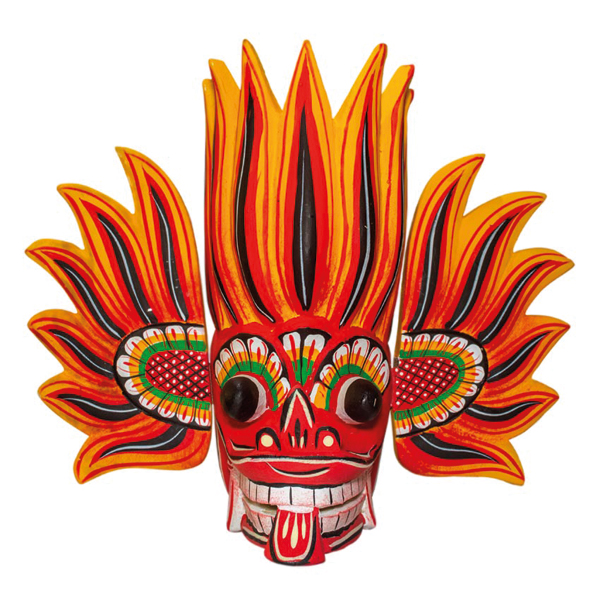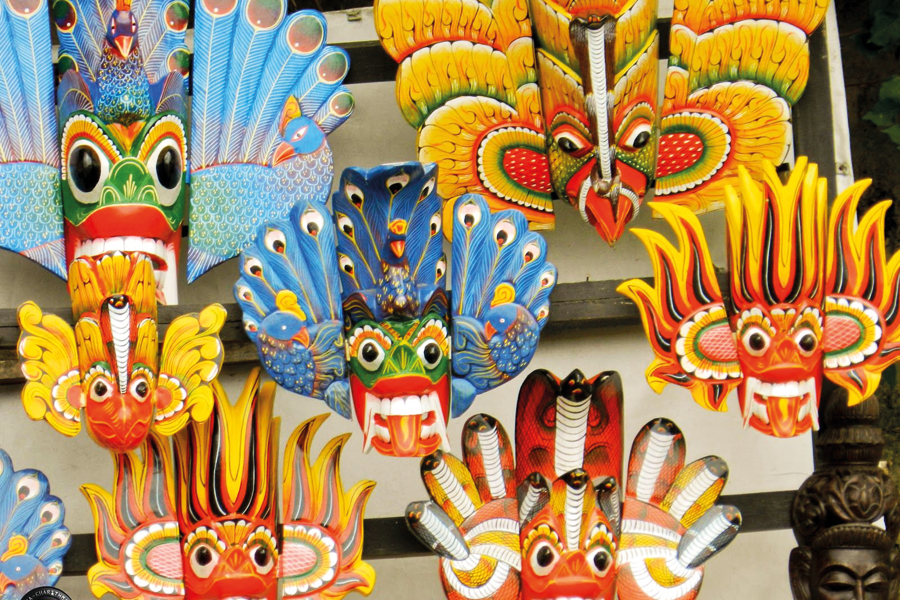Sri Lanka’s traditional Masks
Words : Kamanthi Wickramasinghe If one happens to pass through Ambalangoda, a visit to the Ariyapala Mask Museum will give you some insights to the rich history embedded in the cultural fabric of the country. The history of mask making dates back to the 1800s and these masks were used to portray popular folk tales and kolam or devil dancing. In rural areas, kolam dancing was a ritual associated with people’s beliefs in various demons. When someone falls ill or contracts a communicable disease they often associated it to evil spirits. Kolam or devil dancing was their option to drive away the evil spirit. This tradition has continued for centuries up until the recent past. But now, times have certainly changed.
An inherited culture
Traditions of mask making and devil dancing have been inherited from Kerala and Malabar districts of India. Otaker Pertold in his book titled ‘Ceremonial Dances of Sri Lanka’ states that it is not a possibility to say that it is a speciality of the country and an isolated phenomenon but a means of ceremonial disguise used in every age in every country in the world. In his book ‘Masks of Sri Lanka and Masks and Kolam Dancing’, R. C De. S Manukulasooriya, a member of the Royal Asiatic Society Sri Lanka in 1960 states that kolam has different meanings in different languages. In Tamil it denotes beauty, colour, form, shape, costume or attire while in Malayalam it has the meaning of figure, idol, body or beauty. In Teligu, Kolamu translates to dance.Kolam Tullal, a series of ritual dances are performed in various parts of South India even today. The primary feature of a kolam performance is its visual presentation but the presence of a reader may also indicate the importance of dialogue. Manukulasooriya further states that for the primitive man, dancing is the personification of spirits. “Music resembles the voice of the spirit and drums control their nature. Therefore, it speaks for man and not of man and his attitude towards nature.” Please click on the link below to read full article., https://www.subscription.lk/ 

Leave a reply
Reply To:
Name - Reply Comment




Comments